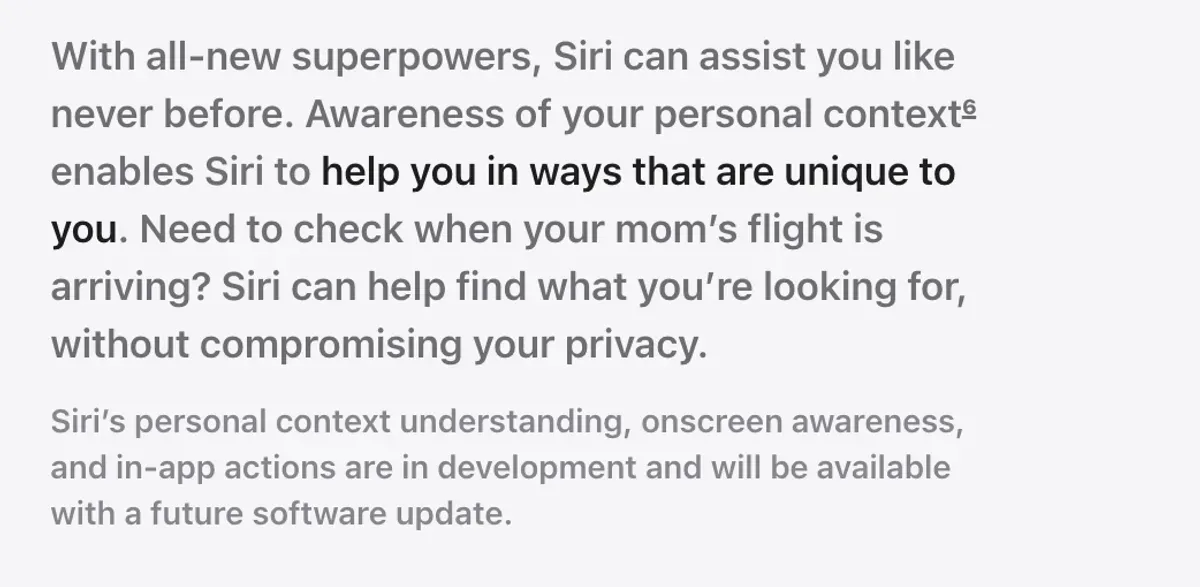Truces and Trillions
Good Morning from San Francisco, Trump and Xi shook hands Thursday. Tariffs dropped 10%, rare earth controls paused for a
Explore the unrealized potential of Apple's AI, Siri. Uncover the promised features that were never implemented and the reasons behind it.
Remember when Apple couldn't miss? Those days just ended. Morgan Stanley analyst Erik Woodring cut Apple's target price by $23 last week. The reason? Siri can't do what Apple promised.
The numbers tell a brutal story. iPhone sales in China plunged 18% last quarter. Huawei, armed with AI features that actually work, reclaimed the top spot.
Apple's response? A YouTube ad vanished. Website promises disappeared. Marketing speak replaced concrete timelines.
The company's statement reads like a surrender note: "It's going to take us longer than we thought." Translation: We can't make Siri work like we said.
Let's talk money. Woodring predicts flat iPhone sales in 2025. Growth estimates for 2026 got slashed. Investors who bet on Apple's AI future just learned expensive lessons.
While Apple stumbles, competitors sprint:
John Gruber of Daring Fireball cuts deeper. He compares this to Apple's dark pre-Jobs era, when the company pitched dreams instead of shipping products.
"This didn't happen to Apple," Gruber writes. "Decision makers within the company did it." He points to a culture shift that should terrify investors.
The missing Siri features sound impressive:
One problem: No one outside Apple has seen them work. Not in demos. Not in betas. Not even in carefully controlled press previews.
The timing couldn't hurt more. Chinese consumers, facing a choice between Huawei's working AI and Apple's promises, picked Huawei. Apple's largest foreign market just shrank 18% in one quarter.
Remember Steve Jobs handling MobileMe's failure? He gathered the team and dropped truth bombs: "You've tarnished Apple's reputation. You should hate each other for having let each other down."
Tim Cook faces worse. MobileMe merely failed. These Siri features never existed.
The damage spreads beyond one product. Apple's $3 trillion valuation assumes it leads tech revolutions, not chases them. Each AI delay chips at that assumption.
Want timeline clarity? Good luck. Apple's new website disclaimer offers corpo-speak: "Siri's personal context understanding, onscreen awareness, and in-app actions are in development."
When will they ship? Sometime between fall 2025 and never. The same features Apple promoted in iPhone 16 ads might not make iPhone 17.

This matters beyond tech circles. Pension funds, index investors, and retirement accounts bet big on Apple. They trusted the company that perfected "It just works."
Now they're learning Apple pitched AI features it couldn't build. Marketing got ahead of engineering. Promises beat reality.
Craig Federighi runs software. John Giannandrea leads AI strategy. Both report to Cook. All three put their names on promises they can't keep.
The cost? Morgan Stanley sees $23 per share vanishing. Chinese sales dropped 18%. Huawei stole the crown. Samsung gains ground.
Why this matters:
Read on, my dear:
Get the 5-minute Silicon Valley AI briefing, every weekday morning — free.